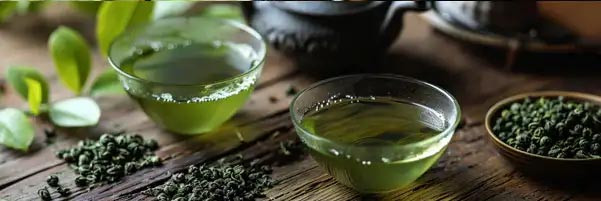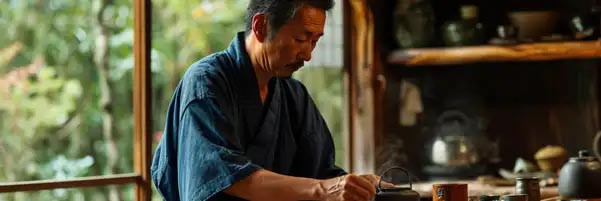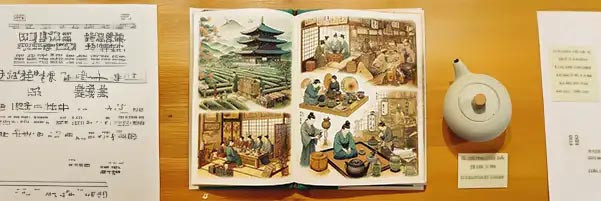Tea has been a central part of Japanese culture for centuries, and it is associated with many unique traditions and practices. In this article, we will explore the different tea ceremonies practiced in different regions of Japan, as well as the arts and practices associated with them. We'll also cover festivals and events that celebrate Japanese tea.
The different tea ceremonies in the regions of Japan
The tea ceremony, or "chanoyu", is a complex cultural practice that involves a series of rituals and precise gestures to prepare and serve tea. There are many regional variations of the tea ceremony, each with their own unique traditions and practices.
In Kyoto, for example, the tea ceremony is known as "Kyoto-style tea ceremony" and is characterized by square-shaped tea bowls called "kyo-yaki". In the Fukuoka region, the tea ceremony is known as "Hakata-style tea ceremony" and focuses on the art of "koicha", a thick, creamy tea that is prepared with a larger amount of matcha and less water.
The arts and practices associated with the tea ceremony
The tea ceremony is often considered an art in its own right, and it is often accompanied by many other cultural practices and disciplines, such as ikebana (Japanese flower arranging), calligraphy, ceramics and cooking.
In the tea ceremony, tableware is considered an important element of the overall aesthetic, and many artisans and potters specialize in creating tea bowls, teapots, and other accessories for the tea ceremony. Similarly, flower arrangement and calligraphy can also be presented to add an artistic touch to the ceremony.
Japanese tea festivals and events
Japanese tea is celebrated at many festivals and events throughout the year. One of the most famous is the annual Uji Tea Festival, which takes place in Uji, a town near Kyoto, in May. During this festival, visitors can watch tea ceremony demonstrations, taste tea and purchase tea products.
The annual Shizuoka Tea Festival is another popular event, held every November in Shizuoka Prefecture, famous for its tea plantations. Visitors can discover the different varieties of tea, as well as the practices and traditions associated with their culture.
Free shipping from 80 euros of purchase in mainland France with the code FREE2480
Free shipping from 80 euros of purchase in mainland France with the code FREE2480
Menu
-
MenuBack
- PROMO -10%, -20%, -30%...
- Japanese green teas
-
Japanese teapots
-
-
-
-
-
Nos marques
-
-
-
-
-
-
-
-
Japanese teacups
-
-
Accessories
-
-
The tea ceremony
-























